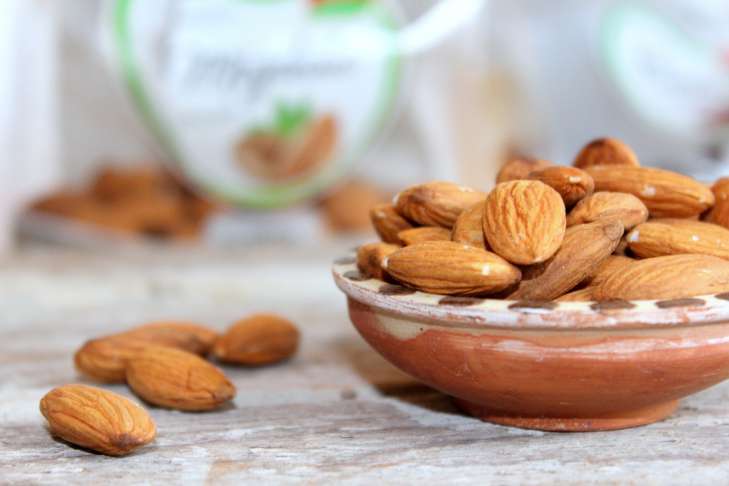Almonds: Health Benefits - You Didn't Know About It
Almonds are a bright, fragrant, sweet-tart nut.
And if these are fresh autumn almonds, then all their wonderful properties are enhanced several times.
That’s why almonds often appear in completely unexpected recipes - their unique aroma and astringency of taste cannot be replaced by anything.
What are the benefits of almonds
Almonds are rich in minerals, fatty acids and vitamins. It is a source of calcium, iron, magnesium, phosphorus and potassium.
It contains a lot of B vitamins (B1, B2, B3, B5, B6, B9), as well as tocopherol (vitamin E).

Almonds are good for the heart and blood vessels, as they contain many unsaturated fats, amino acids and minerals.
Almonds can replenish magnesium deficiency in the body. 100 grams of nuts contain up to 60 percent of the daily requirement of the substance.
This amount also contains up to 70 percent phosphorus.
These substances lower blood sugar levels and destroy bad cholesterol, strengthen blood vessels and lower blood pressure.
Some of the health benefits of almonds include their natural antioxidant and anti-inflammatory properties.
The antioxidants in almonds play an important role in protecting against chronic diseases.
How many almonds can you eat per day
It is recommended to consume about 30 g of almonds per day, which is approximately 20-25 nuts.
This amount provides the body with useful substances and does not lead to excess calorie consumption.
When is it better to eat almonds in the morning or evening
Just a couple of almonds in the morning can satisfy your hunger and prevent overeating.
Almonds are especially useful for people engaged in mental work.
It is recommended to eat nuts to increase brain activity in the morning.
Doctors do not recommend eating almonds in the evening, and especially at night.
We previously talked about the health benefits of chia seeds.

